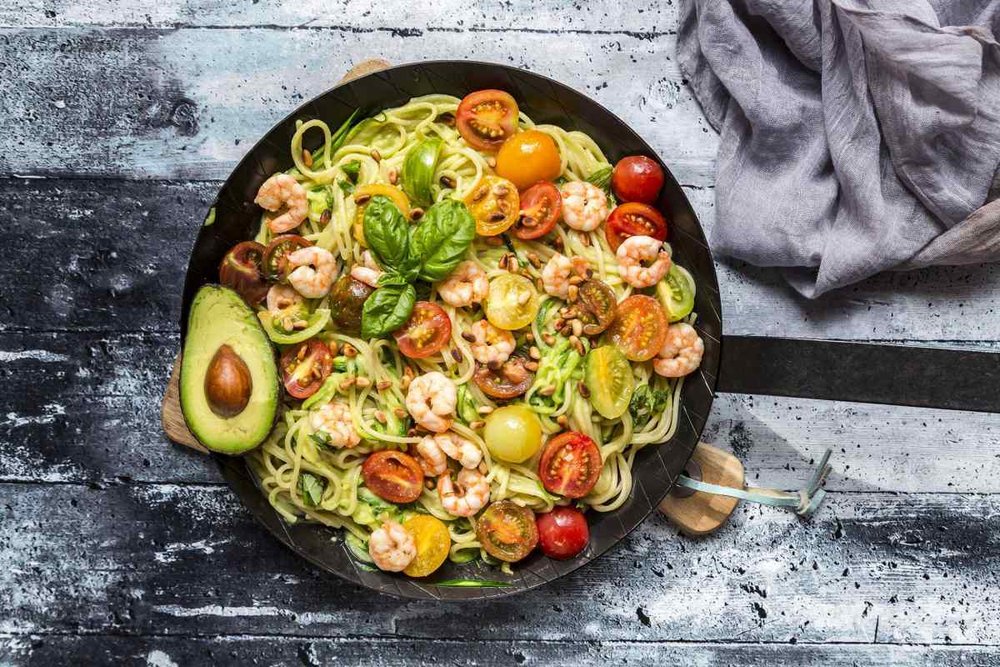The ketogenic diet continues to dominate the diet world. Google’s latest trends data shows it’s once again the top-searched diet, with over 25.4 million searches in 2020 alone. (Alongside other popular searches such as ‘Where can I buy toilet paper?’ and ‘How to make hand sanitizer’!)
The benefits associated with keto are extensive: weight loss, better sleep, mental clarity, and even a reduced risk of developing serious conditions such as type 2 diabetes. But as with all diets, it’s not necessarily a straight path to success.
If you’ve been contemplating switching to a ketogenic diet, here are 5 points to consider before jumping in.
- Create a tailored recipe library
It’s not all avocados and eggs! Prior to starting a keto diet, many people worry that they will feel overly restricted.
But if you do your research and put together a collection of recipes to suit your taste, it’s likely you’ll be pleasantly surprised – and you definitely won’t be eating the same foods day in, day out.
Meat, poultry, fish, eggs, nuts and low-carb veg . . . there’s an extensive list of keto-friendly savoury meals and desserts to enjoy.
The key is to plan ahead so that you’re able to cook fresh, nutritional meals to keep you on track.
There are many great recipe websites out there, including BBC Good Food which has a dedicated section of keto recipes.

- Prepare for keto breath
A week or so into starting a ketogenic diet you may notice that your breath doesn’t smell too great. No, you’re not imagining it – you have a case of keto breath.
One of the three ketone bodies produced in ketosis is acetone, which is excreted through your breath.
It may seem like a small price to pay for the extensive benefits, but for some, it can be unappealing enough to quit keto.
But you can take mitigating action with a few simple measures:
● Drink more water
● Practice top notch oral hygiene
● Chew sugar-free minty gum
● Cut your protein intake slightly
Luckily, keto breath only affects some. And it’s temporary, lasting up to a week until your body adjusts.
You can actually eat vegetables
Many who start keto believe it’s the ‘no carb diet’, but in fact there’s no requirement to eliminate all carbohydrates.
It’s possible to eat a small amount of carbs each day while managing to be in ketosis.
The macronutrient breakdown of the keto diet is recommended as 70% fats, 25% protein and 5% carbs. This equates to roughly 15g of carbohydrates a day, which means you can bulk out meals with low carb veggies like courgette.
Does that mean you can binge on platefuls of pasta? No. But it does mean you can make courgetti spaghetti to go with your delicious Bolognese sauce…
- Demand the data!
Tracking your ketone levels is the most accurate indicator that you are making the right diet choices.
The benefits of a keto diet come from being in ketosis, so it’s vital to know that you’re actually achieving that.
For the people who fail to see results on keto, it’s typically because they’re not in ketosis, but they aren’t aware of this because they’re not monitoring their ketone levels.
Using a ketone breath-testing device like Ketoscan Mini will give you a precise ketone reading to know if you’re successfully in ketosis.
A word of warning – not all ketone breath-testers are created equal. It’s important to invest in a good quality device that will offer accurate and reliable results.
The Ketoscan is ultra-precise, lightweight and portable, meaning it can be used anywhere at any time, for just 13p per test.
- Hasta la vista, hunger pangs!
Are you the type of person who thinks about lunch the second you’ve finished breakfast? You’re not alone. But feeling hungry and thinking about food constantly isn’t a healthy way to live.
Typically, the reason for constant hunger is an overload of blood sugar spikes, often caused by too much processed and junk food.
As the keto diet is high in fat, most people feel satiated for long periods of time.
When fat enters the small intestine it slows digestion, increases fullness and as a result decreases appetite.
A 2005 study in The American Journal of Clinical Nutrition showed that a high fat and high protein diet increased satiety and decreased appetite and calorie intake, compared to a diet lower in fat and protein.
Time to take the plunge?
It’s clear that the keto diet can offer fantastic health and weight-loss benefits, but there’s no doubt it takes commitment.
Careful preparation is key, so now’s the time to arm yourself with some top-notch recipes, a few packs of sugar-free gum, and the latest ketone scanning device. Good luck on your ketone journey!
